
 |
|
| ||||||||||||||||||
|
Emerging Cinema Master - Kiyoshi Kurosawa
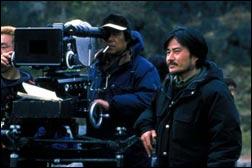 For audiences looking for complex and intelligent cinema, there is a growing sentiment that the films coming out of Asia are the best in the world. Specifically, the genres that form "Asian Extreme" (horror, thriller, and sci-fi) have gained appreciation because the Asian approach uses the classic tools of the cinema over traditional American special effects and big stars. Filmmaker Kiyoshi Kurosawa is one of the directors working in Japan who excels in uses these tools. The importance he places on the basics of filmmaking (sound, lighting, photography, and editing) are then combined with highly effective storytelling, rich in themes and symbolism to produce challenging films that continue to reward even the most critical viewer. Recently, I had a chance to speak with Mr. Kurosawa about several films in his filmography, his background, and some of his philosophies behind his filmmaking.
For audiences looking for complex and intelligent cinema, there is a growing sentiment that the films coming out of Asia are the best in the world. Specifically, the genres that form "Asian Extreme" (horror, thriller, and sci-fi) have gained appreciation because the Asian approach uses the classic tools of the cinema over traditional American special effects and big stars. Filmmaker Kiyoshi Kurosawa is one of the directors working in Japan who excels in uses these tools. The importance he places on the basics of filmmaking (sound, lighting, photography, and editing) are then combined with highly effective storytelling, rich in themes and symbolism to produce challenging films that continue to reward even the most critical viewer. Recently, I had a chance to speak with Mr. Kurosawa about several films in his filmography, his background, and some of his philosophies behind his filmmaking.
DVD Talk: Home Vision has recently released two of your films in the United States, Séance (Korei) and Charisma (Karisuma), and I'd like to talk a little bit about Séance. Séance On A Wet Afternoon was originally adapted into a film in 1964 in the U.K. What was your interest in working with the subject matter? What's the evolution of Séance? Kiyoshi Kurosawa: In Japan, I actually made this as a television drama. A producer approached me with the original book (written by Mark McShane), obviously translated into Japanese. What interested me about the narrative story in the book was that it featured a ghost, in other words, a dead human being, as well as an average couple who had been living very normal lives who, in fact, became criminals. These are the two elements of the original novel that interested me. DVD Talk: That's interesting, that element is certainly the core of the English film as well. Did you see the Bryan Forbes film? Kiyoshi Kurosawa: At the time, I didn't even know about the film. Someone eventually told me about it, and I've now recently been able to see it, but I had no idea such a film existed at the time. DVD Talk: What are your feelings about the film? Kiyoshi Kurosawa: I thought it was very interesting. I thought it was fairly faithful to the original novel. DVD Talk: You spoke about being interested in the ghost concept. There's this recurring theme in Asian ghost stories where the ghost is usually female, young, with very long hair that covers the face. What's that coming from in the Japanese culture? Kiyoshi Kurosawa: I think this stems from traditional stories that are called Kaidan, which means ghost story in Japanese. There are many, many Kaidan films that have been made, the most famous one being called Yotsuya Kaidan. This features a ghost story from the Edo Period, so that would be from the 17th/18th centuries. I think it makes sense that they are often women because in these stories it's a very male dominated world, so the reason why ghosts tend to be female is that oppressed in life, they are more powerful in death, so they are able to avenge themselves once they are dead. DVD Talk: Charisma is different from Séance, where Séance is structured around a strong narrative, Charisma is really an allegorical film. What's the story behind this film? 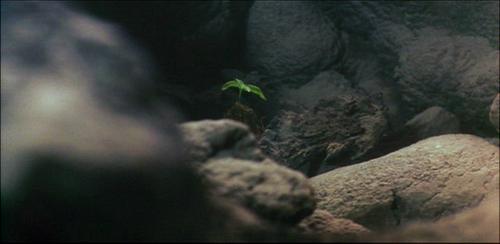 DVD Talk: One of your great strengths is your ability to blend genre filmmaking and high concept art films. Charisma has that element. It's essentially, like you're saying, a movie about a tree where there three separate groups of people with different motives for the tree, it's almost like an Indiana Jones type treasure/adventure story, but there's a larger issue underneath that with the environment. How do you balance these two concepts: genre filmmaking and intelligent, high concept films? Kiyoshi Kurosawa: It's true that whenever I make a film, I'm interested in the thematic issues, but basically, as we know, if you're going to make a film that going to be commercially released, there a time limit, somewhere between 100 and 120 minutes that defines the form of expression called films. In order to tell the story within that set time frame, I really do like to rely on the strength of genre. I think if you just make movies set to convey a certain theme, they have a tendency to get a little too long. The truth is that it had a ten year gestation period from writing the script to shooting the movie, so I had a lot of time for all kinds of confusion and doubt to fester. Charisma is an extreme case where genre and theme are put together in a hodge-podge fashion. DVD Talk: Charisma, as you said, was written in the early 90's and won you a trip to the Sundance Workshop. What was that experience like? Kiyoshi Kurosawa: It was a very precious and special time for me. It was my first exposure to the international film community, but it was a time that I realized how completely different Japanese and American movie making systems are. In a way, part of the result of being exposed to Sundance was that some part of me thought, "Well, maybe if the Americans like it, I can make Charisma in the United States." But actually, being at Sundance made me resolve that I must make this film in Japan. My understanding of American cinema is that the protagonist must be taking actions towards a clearly defined goal. In my screenplay, there are many moments where my protagonist has no goal. He is just existing. Many of the Americans there kept bothering me, kept saying, "What's going on with this character now? What's his intent? What's his motive?" And I would have to say, "He doesn't have any intent. He's just being." They found that very strange and odd. 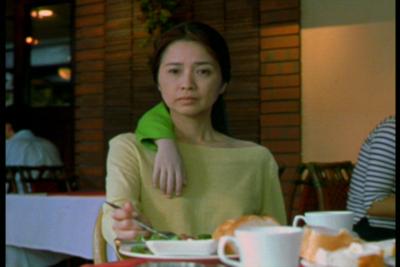 DVD Talk: That's a theme that's in a lot of your films, where your main character is like a blank slate where he has no ultimate goal, and he can become an analogy for change or whatever theme you want to comment on, and by the end of the film, how's he's changed is the ultimate comment of how an individual's actions affect the whole of society. Because the character is a blank slate, we can see the evolution of why the character becomes who they become. It's a very effective technique. Kiyoshi Kurosawa: Yes it's true, my film feature very passive characters, but I think that's a very Japanese way to be. That's a very average way to be in Japan, and I'm not portraying someone special when I'm showing that kind of character. DVD Talk: During your early career, you were a student under Shigehiko Hasumi, former President of the University of Tokyo, and one of Japan's leading film scholars. He is regarded in Japan as one the greatest film theorists in the world, but save from a few appearances in Film Comment magazine, his teachings are largely unknown to the rest of the world. Can you talk about your experiences with him? Kiyoshi Kurosawa: I took some of his film classes in college and was really affected by them. What he taught me was how to watch films, how to perceive them, not how to make them. How to make them is very much self-taught. The core of what he taught me is that films aren't just about entertainment, but films are so vital and exciting that they are worth spending your whole life exploring and examining. DVD Talk: Some of your early films where made with the Nikkatsu studio, Japan's oldest film studio, and you had a much publicized falling out with them. Can you discuss what they wanted with your work and why you didn't think you could compromise? Kiyoshi Kurosawa: Well, I won't go into all the details, but there was a time where there was an aspect of a branch of Japanese filmmaking called the Nikkatsu romance porn genre, and I made one of them right about the time it collapsed, right at the end of the 1980s. I was still young at the time, and I wanted to sink my teeth in this opportunity to make a film (Vertigo College (Shigarami Gakuen)), and wanted to have a lot of freedom in what I made. I thought that I had fulfilled the porn aspect of the film, but according to them, what I didn't fulfill was the romance aspect of the film. I didn't have a love story story-line, which I completely ignored. Instead, I choose to portray a university that was best with various factions who were in-fighting amongst themselves. The studio decided that my film didn't qualify as romance porno and decided that they weren't going to release it. I said, in that case, let me buy it and release it myself. That was the end of that. 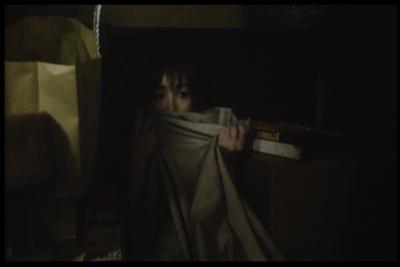 DVD Talk: You ended up working outside the Japanese studio system. How did that falling out change you as a filmmaker and what influence has that had on your current work? Kiyoshi Kurosawa: I don't know if I feel influence from that particular experience now, but at the time I was certainly considered kind of a dangerous character within the studio system, kind of a persona-non-grata that couldn't be relied upon to deliver what they wanted. At the same time there were young people and critics who supported my idiosyncratic approach to filmmaking who really appreciated my work. At this point it's hard to say whether it was a good experience or bad experience, but the way I like to think of my self is that I somehow bridge the distance between a creative filmmaker and a craftsperson who can deliver a commercial film. I like to think of myself as somewhere in between those two. DVD Talk: One of the big differences between American filmmakers and Japanese filmmakers is the quantity of work, while being able to maintain a high level of quality. Why is it that so many Japanese filmmakers are so prolific - you yourself make two or three films a year - while in the U.S. we're lucky if the good filmmakers can make a good film once every two or three years? Kiyoshi Kurosawa: I don't think there's any mystery to that. I think that was also the case in the past in the U.S., say in the 1940s/50s, where people churned out many more films. The other factor is that budgets in Japan are so low that in order to survive as a filmmaker, you have to work on several films a year. With such a low budget, the director's fee is also low. There are times when I wish I had more time where I could work on and create a good film, but on the other hand, I think when you very quickly churn out a screenplay and film it over the course of a few weeks and just complete the film very quickly, it may be a little slip-shot in technique, but I think you are able to retain a primitive strength of that uninhibited creative impulsive. It's directly translated into the film without a lot of rewrites that may make a film more polished, but I think sometimes, in the course of polishing a film, the basic idea, a strong idea, can lose some of its power. DVD Talk: The theme in your big international hit Cure (Kyua), another Home Vision DVD release, is a theme in several of your films: the effect of an individual's needs and actions on society as a whole. What interests you most about this theme? 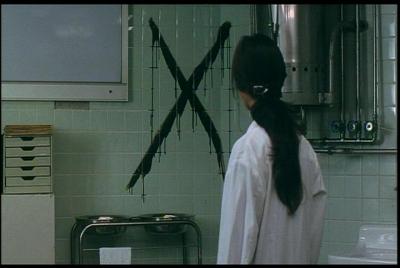 Kiyoshi Kurosawa: One of the major themes of my films is individual life in the metropolis called Tokyo. I'm not sure how this plays out in the U.S., but what we have in Tokyo is individual human beings living completely cut off from traditional, regional communities that had supported them in the past. The theme is that of a human being, isolated amidst a huge aggregation of people and information systems, but the individual remains entirely entirely alone within this metropolis. Cure is the film that most clearly illustrates this theme. DVD Talk: What's created that situation in Tokyo? Is it Western/American influence? Western concepts of the self, like self-determination, certainly can conflict with the traditional Japanese concept of honor and duty. Kiyoshi Kurosawa: Well, that may be the case, but I actually think that it's something larger and more inevitable than the difference between Eastern and Western cultures. I think you have technological development and more if its advance in civilization, than you have in capitalism. This isolation is an inevitable conclusion given this development. DVD Talk: This is a good bridge into another one of your films, Pulse (Kairo), which does deal with this concept of how technology impacts the individual. Pulse is one of the scariest movies I have ever seen. What do you do to target fear in your audience? What do you think is scary? Kiyoshi Kurosawa: It makes me very happy to hear someone from the United States say that they find my film very scary, but, at the same time, it feels a little strange because the ghost in Pulse does almost nothing. It's basically an inactive ghost. To me, I find a ghost who does nothing terrifying, but my understanding of many American scary films such as Alien or films about pathological killers is that what considered scary in the States is something that attacks us. The ghost in Pulse doesn't really do that. For me, that seems a natural object of fear. 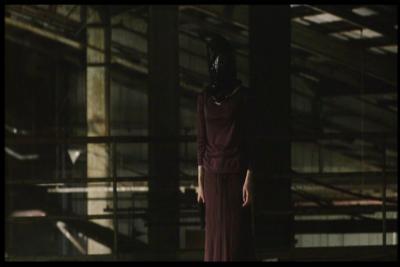 DVD Talk: Certainly mainstream audiences want the slasher killer. That's what they and the people who produce these films want, because it will make them jump. When a preview audience sees a horror movie, there are people that actually count how many times an audience does physically jump, and that is an indication of how effective a film is. That moment of adrenaline is actually being quantified to show how scary a film is, but your films are much more complex than that. For example, in America, when we have a theme of evil technology, the technology itself has to be given human qualities. A computer is given the ability to learn to think and kill on its own, or some monstrosity that we've created to benefit us will somehow turn on us. In your films, you use technology as a tool which human use for evil needs or the dependence of technology is a symptom of a much larger problem, like in Pulse, where the Internet is a piece of technology that is isolating us from one another. Can you comment on this difference? Kiyoshi Kurosawa: Yes, you may be right. I try to portray the incomprehensible as non-human, unlike America, where you anthromorphosize inanimate objects through human intentions, but I think this can be true of human beings as well. Ultimately, the Other - anyone who is not us - remains incomprehensible no matter how much we try to communicate - and we should try to communicate with the Other. This concept is valid because we are surrounded by the Other: the incomprehensible humans and incomprehensible actions human beings take. DVD Talk: This returns us to the theme of isolation. Ultimately in Pulse, this isolation drives people to start committing suicide, which, of course, leads to further isolation, and by the end, there are very few people left and the city is left in ruins. The apocalypse is a common conclusion to several of your films. Why? 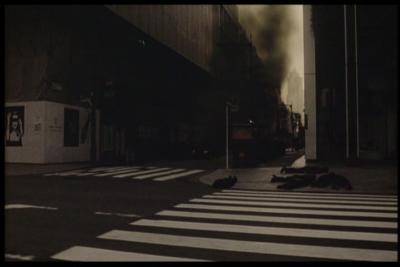 Kiyoshi Kurosawa: I don't necessarily see the apocalypse as a negative or a tragic conclusion. It's not despair. It's the culmination of a certain trajectory that may lead to a new beginning where we can acknowledge that the Other remains inscrutable. We can devise new systems for coexistence with the Other. I don't know what that future would look like, but I don't portray it as misery. DVD Talk: It's interesting that one of your most recent films is called Bright Future (Akarui Mirai) Is that title tied into this theme? Kiyoshi Kurosawa: I don't think of Bright Future as a clear analysis of society. I think when I get stuck with a story, and I'm not quite sure where to take it, I tend to take it to a natural point of rejuvenation, or starting over. Sometimes I'll end up destroying Tokyo and starting over. However, I don't necessarily take this a reflection of reality, its more something that happens in my head. DVD Talk: Is there any plans to have a U.S. DVD release of Pulse anytime soon? Kiyoshi Kurosawa: You're aware that there's a planned theatrical release from Magnolia Pictures in August, aren't you? DVD Talk: No, I had no idea. That's fantastic news. Kiyoshi Kurosawa: Yes, I believe the target date is August 12th. DVD Talk: There's a suicide scene in Pulse where a woman jumps from a water tower. The jump happens in the background, but the camera appears to capture the entire fall until she hits the ground in one, fluid shot. It's a very abrupt, shocking scene. How was that accomplished? Kiyoshi Kurosawa: Yes, I have to say, I pulled that one off pretty well. The truth is that someone really is jumping, and the woman who is jumping is both a stunt woman and an actress who is bungee jumping. Of course, she doesn't really hit the ground. We used some blue screen to match the shot to make it look like she hit the ground. I think what people find deeply alarming is that she is both jumping and acting at the same time so you are able to get to the heart of that experience. DVD Talk: The Weinstein Brothers have had a remake of Pulse in the works for some time now. There was even a point where there were some rumors you may direct the film, but Wes Craven came aboard, and you stepped aside. Now, the project looks like its back on with a new director and a young, hip cast. You had mentioned earlier during your trip to Sundance that you thought your storytelling was incompatible with American moviemaking, but we've had some recent success, at least box-office wise, with American remakes of Ringu and The Grudge, and even Hideo Nakata directed the sequel to the American Ring. Do you think the situation has changed? Kiyoshi Kurosawa: Some part of me is pleased that my film is being remade in the U.S., but I think, frankly, as long as it's being remade in the Hollywood system, I have a sense of anxiety and dread that it will be very difficult for the film to be fused with the same sensibilities that I made my original film with. I think that, in general, it's impossible for the sensibilities that these Japanese films have to be remade inside the Hollywood system. I find this sad, and I don't care to participate in such ventures. However, I understand that there are many Americans who bring to films a lot of intelligence and thoughtfulness. If there were a way, outside of Hollywood, to remake my film in the English language for that kind of audience, then that would be wonderful. DVD Talk: Can you talk a little about your current project, Loft (Shi no otome)? Kiyoshi Kurosawa: Loft is completed, but it hasn't been released in Japan yet. I think they are exploring the possibility of an early release next year, and it may be possible that it finds its way into a film festival abroad in 2006. I can't tell you much about the story at this time, but what I ended up making is kind of a strange love story with many horror elements. That's the film I wanted to make, but that's a bit of a hard sell in the Japanese market. Apparently, I should have made a less unambiguous love story or a more ambiguous horror. We're struggling a bit to find the appropriate release. DVD Talk: That's a shame. Mr. Kurosawa, it's been an honor to speak with you today. You are truly one of the best filmmakers in the world. - James Emanuel Shapiro Translation of Kiyoshi Kurosawa courtesy of Linda Hoaglund Kiyoshi Kurosawa Films On DVD:
Archives
Columns
|
| ||||||||||||||||
| ||||||||||||||||||